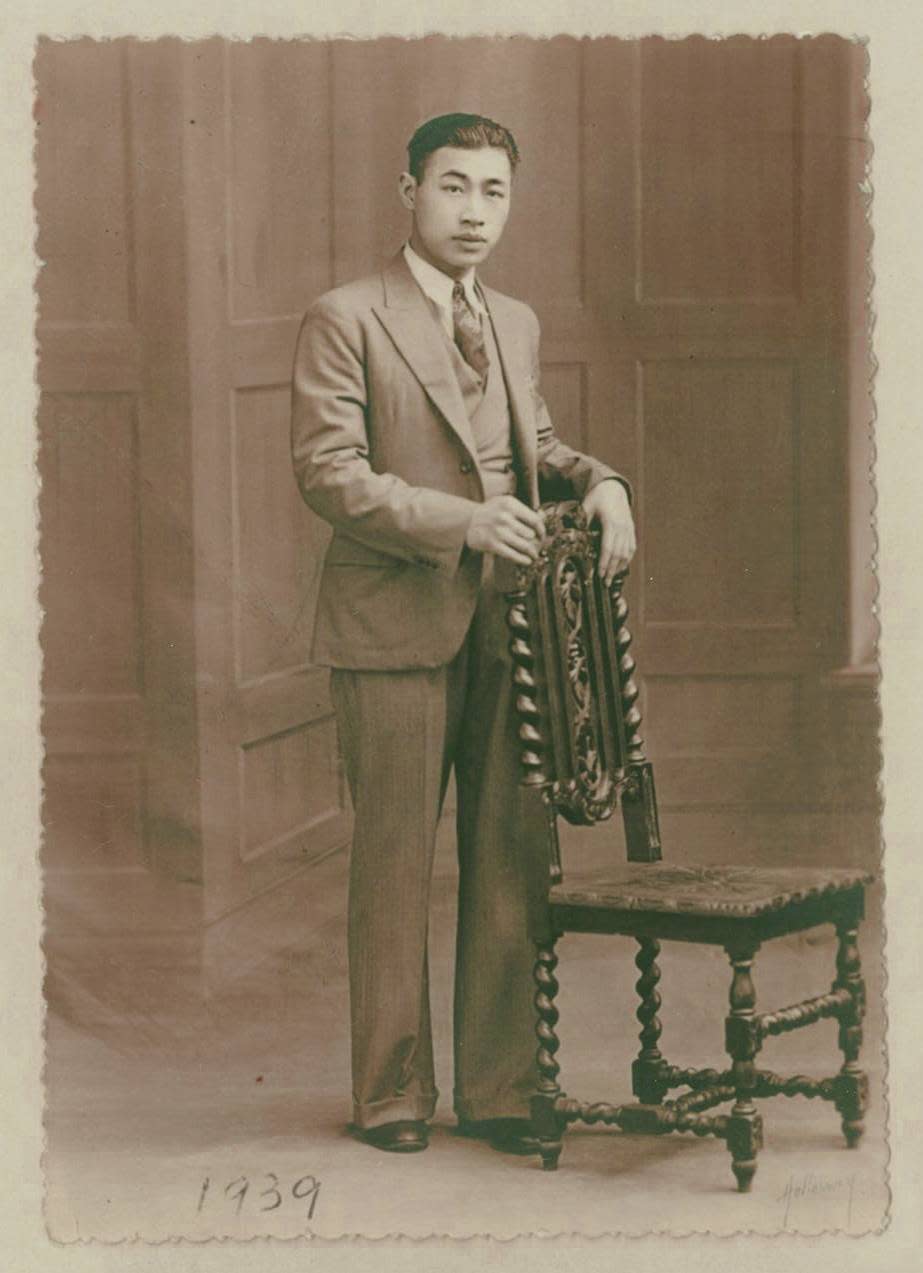How a thriving Chinese community was built in N.L. despite racism and hardships


Members of the N.L. Chinese community speaking on The Signal. Pictured from left to right: Zihan Jin, a new Memorial University graduate; Jerry Li, owner of Magic Wok eatery in St. John's; Gordon Jin, president of the Newfoundland and Labrador Head Tax Redress Organization; Shirley Hong, a retired entrepreneur; and Francis Tam, president of the Chinese Association of Newfoundland and Labrador. (John Pike CBC )
After an hour of talking on the radio with a multi-generational group from Newfoundland and Labrador's Chinese community, Zihan Jin wanted to express gratitude for the road that was paved for her generation.
"They were working super hard to make my generation be here and stay – a really happy life," she said.
Jin, a recent graduate from Memorial University, first came to St. John's from Beijing to stay with her aunt and finish high school.
Jin was one of five panelists taking part in a conversation on CBC's The Signal that celebrated Asian Heritage Month. The theme this year is Preserving the Past, Embracing the Future: Amplifying Asian Canadian Legacy.
For the Chinese community of Newfoundland and Labrador it's a thriving community built in spite of racism, hardship and discriminatory government policy.
Community evolution
"Basically it evolved from hand laundries to retail, restaurants and now the next generation is more professional people with various occupations whether in medicine, physicians,, academics, engineers, that sort of thing," said Gordon Jin, president of the Newfoundland and Labrador Head Tax Redress Organization.

Gordon Jin's father, Frank Jin, is seen here in 1939. He paid a $300 head tax, solely because of his race, to gain entry to Newfoundland. (Submitted by Gordon Jin)
Jin's father immigrated to Newfoundland in 1931 and paid a head tax of $300.
It wasn't until the repeal of the head tax in 1949 that many of the wives and families could come over.
Jin's mom was finally able to make it to Newfoundland in 1955.
"I grew up in a period when really the Chinese community was growing up in terms of family," he said.
"My parents never told me what they went through to come here. They would never do it. Many of the families didn't know. When my generation passes, hopefully the generation behind me will carry that torch. But we have an opportunity to educate the public. Educate the community," he said.
WATCH | Adam Walsh speak's with members of N.L.'s Chinese community for Asian Heritage Month:
Helping to usher in the new generation is Francis Tam, the president of the Chinese Association of Newfoundland and Labrador.
Tam refers to himself as a 3rd generation, proud Chinese-born Canadian-Newfoundlander.
His grandfather came to Newfoundland in the 1970s and opened a restaurant in Corner Brook. His dad would go onto take over a restaurant in Grand Falls-Windsor that he named King City.
"I spent most of my childhood working for my parents. I learned a lot of skills and developed a lot of good skill sets early as a cook," Tam said.
"And I'm proud to say I'm pretty good at it."
Instead of taking over the family business, Tam ended up following his own path. He started as a dishwasher, worked his way up in the industry, studied culinary arts and became a red seal chef. Tam now works for the Newfoundland and Labrador government.
As he stewards the current generation and looks ahead, Tam also takes time to celebrate and remember the folks who built the community.
"The pioneers who paved the way. They may not have seen it but they really succeeded in providing a future for their descendants or future generations that will thrive," he said.
Download our free CBC News app to sign up for push alerts for CBC Newfoundland and Labrador. Click here to visit our landing page.

